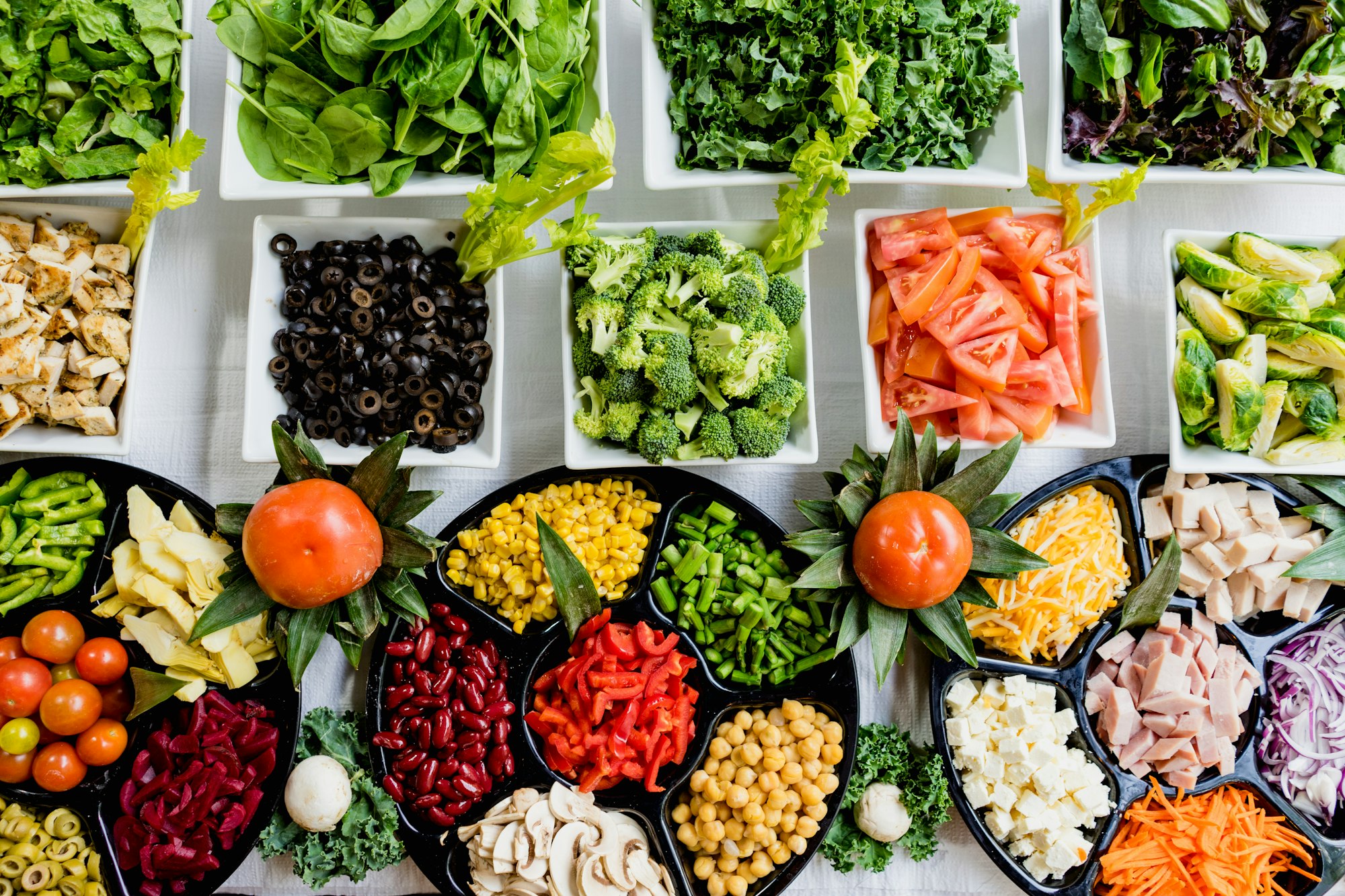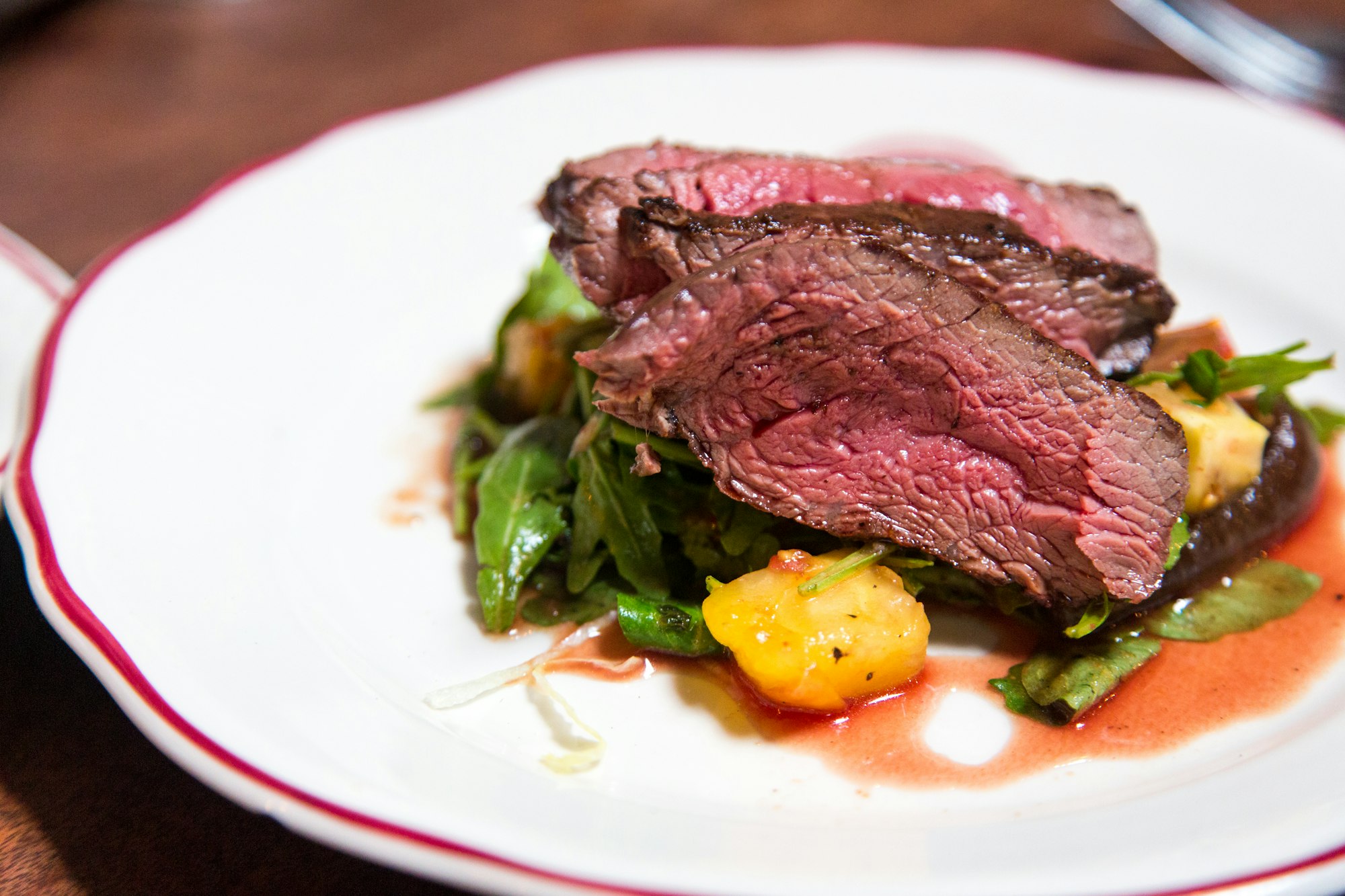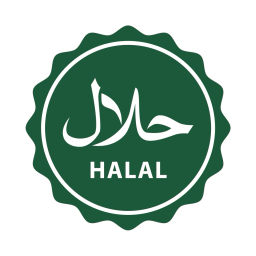Halal And Kosher Practices

Halal and Kosher practices are dietary rules within Islam and Judaism, respectively. While there are some parallels and overlaps, each system of rules has its own set of traits and interpretations.
Both Halal and Kosher practices are influenced by individual interpretations and regional or cultural customs. This overview provides a fundamental comparison, and it is vital to respect each faith's different views and understandings.
Overview of Halal and Kosher Dietary Laws
Halal Dietry Laws:
The Quran and Prophetic traditions are used to derive the major religious doctrines of Islam. Islam was intended to include all elements of life. This principle leads to dietary limitations. As a result, there are permitted foods and beverages and prohibited foods and beverages. Halal and Haram are the words used to describe them
Kosher Diietry Laws:
Kosher foods are those that adhere to Jewish dietary laws known as kashrut (dietary law). The laws of kashrut apply to food obtained from live beings, and kosher foods are limited to specified types of mammals, birds, and fish that match specific criteria; the flesh of any animals that do not meet these criteria is prohibited by dietary laws.
Importance Of These Practices In Islam and Judaism
The significance of Halal and Kosher practices extends far beyond merely avoiding particular foods. They have an intrinsic connection to the theological, cultural, and social fabric of both Islam and Judaism. Here's a closer look at what they mean:
-
Halal is a key religious duty for Muslims, as outlined in the Quran and Sunnah. Following these standards is regarded as an act of obedience to God and adds to spiritual well-being in general.
-
Halal encourages the ethical treatment of animals by ensuring that they are raised and slaughtered in a humane manner. This corresponds to Islamic values of compassion and respect for all living things.
-
Sharing Halal meals develops a sense of belonging and fellowship among Muslims. It is a physical manifestation of religious identity and shared beliefs.
-
Some believe that Halal dietary regulations, which emphasize lean meats, fruits, and vegetables, are consistent with healthy eating ideals.
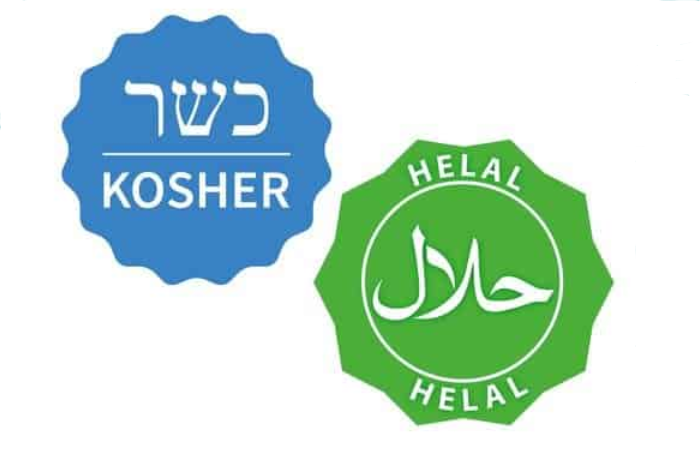
-
Kosher observance preserves a vital relationship to Jewish history and culture, which has been handed down through centuries. Following these dietary regulations connects people to their forefathers and enhances their religious identity.
-
These regulations are viewed as a means of preserving ceremonial purity and holiness in both the individual and the community. Following these commandments is said to be a means to dedicate oneself to serving God.
-
Like Islam, Kosher customs promote ethical treatment of animals and appropriate resource utilization. This promotes conscious eating and care for the natural world.
-
Keeping Kosher in the face of historical persecution and diaspora has become a symbol of Jewish fortitude and cultural continuity.
Both Halal and Kosher practices have broader social and environmental implications. The emphasis on ethical sourcing and responsible consumption enhances animal welfare and long-term sustainability.
Historical and Religious Significance
Both Halal and Kosher practices have long histories and theological significance within their respective faiths. Let's take a closer look at each:
Halal:
-
Before Islam, the ideas of "halal" (permissible) and "haram" (forbidden) were related with clean and filthy actions.
-
The Quran included specific dietary requirements, expressly outlawing pork, blood, and animals slaughtered without mentioning Allah's name.

-
Hadiths (Prophet Muhammad's sayings and actions) explained Halal practices, such as slaughter methods and animal treatment rules.
-
Scholars evaluated and discussed Halal rules, resulting in slightly different interpretations from various legal systems.
-
Muslims regard Halal as a vital duty that demonstrates devotion to God's will and seeks His blessings.
-
Halal fosters animal compassion, prioritizes hygiene, and supports ethical eating.
-
Muslims who eat Halal meals develop a sense of community and belonging, bonding them around common values and traditions.
-
Following Halal rules is regarded as a means of purifying oneself and cultivating a deeper relationship with God.
Kosher
- The Torah, notably the book of Leviticus, is the cornerstone of Kosher rules, describing specific dietary restrictions and food preparation guidelines.

-
Over centuries, oral traditions and interpretations by Rabbis expanded on the Torah's precepts, addressing new conditions and expanding cultural customs.
-
Kosher traditions changed to local ingredients and customs while keeping essential principles as Jewish communities spread over the world.
-
Keeping Kosher is considered as a method to fulfill God's promise with the Jewish people by displaying adherence to His laws.
-
Kosher traditions are regarded as critical for preserving ceremonial and spiritual purity in both the person and the community.
-
Kosher, like Halal, values ethical food source, animal welfare, and thoughtful eating.
-
Kosher customs are a concrete manifestation of Jewish identity, connecting people to their past and traditions.
Religious Texts And Teachings Defining These Practices
Allah Azzawajal mentions in the holy Quran:
"Oh, you who believe! -Eat of the delicious foods that We have provided for you, and thank Allah if He is the one you worship. (2:172).
"He has forbidden you from eating carrion, blood, swineflesh, or anything sacrificed in the name of someone other than Allah. However, it is not sinful for him to be motivated by necessity rather than want or transgression. Says the Prophet, "Allah is Forgiving and Merciful." (2:173).
"Oh, you who believe! Fulfill your obligations. The beast of cattle is made lawful vnto you (for nourishment) except what is declared unto you (here), and game is prohibited when you are on pilgrimage. Lo! Allah ordains that which pleases Him. (5:1)
"And consume not of whatever in which Allah's name is not mentioned, for it is an abomination. Lo, the devils inspire their followers to disagree with you. But if you obey them, you will be true idolaters. (6:121).
As per the Hadith Shareef
-
Abu Thalaba reported that Allah's Messenger prohibited eating the meat of beasts with teeth.
-
Narrated by Ibn Umar: The Prophet cursed anyone who did Muthla to an animal (cutting its limbs or another part of its body while it was still alive) (Bukhari).
-
According to Abu Ya'la Shahddad ibn Aus, the Messenger of Allah stated: "Verily, Allah has prescribed proficiency in all things." Thus, if you kill, do it well; if you slaughter, do it well. Let everyone of you sharpen your blades and spare the anguish of the animal you slay" (Muslim).
As per the Torah
Torah: The major scripture of Judaism, particularly the book of Leviticus, defines the core Kosher regulations (Leviticus 11–14). It prohibits certain foods, including as pork, shellfish, and animals with specified anatomical structures.
Talmud: The Talmud is a compilation of Rabbinic comments and discussions on the Torah that elaborate on Kosher laws, such as slaughter methods, food preparation, and utensil separation.
Halakha: As per Jewish law derived from the Torah, Talmud, and subsequent Rabbinic interpretations. different sects of Judaism may hold slightly different views on specific Kosher practices.
Jewish teachings: Concepts such as Kedusha, Kashrut (ritual purity), and Tzniut (modesty) shape the ethical and spiritual context of Kosher adherence, which is linked to keeping a connection with God and His teachings.
Understanding the Islamic Dietary Laws
Muslims follow Islamic dietary guidelines. Islamic law divides "lawful" and "unlawful" foods. Dietary regulations are included in both the Quran, Islam's holy book, and collections of teachings attributed to the Islamic prophet Muhammad ("Sunnah").
Definition Of Halal
Halal is an Arabic term meaning "lawful or permitted." It is a concept used in Islamic religion to contrast with the word haram (which means "unlawful or not allowed").
These phrases show which living actions are permissible or prohibited for Muslims. While halal refers to much more than only Islamic dietary requirements, it is most commonly associated with food, beverages, and other products.
Key Principles And Rules Of Halal Food Preparation
Halal food preparation is based on fundamental principles and norms that govern everything from ingredients to equipment to the slaughter process. Here's an overview of the most crucial aspects.
- Halal criteria allow consumption of meat from land animals deemed "tahir" (pure), such as cows, sheep, goats, deer, and camels. Poultry are also permitted. Fruits, vegetables, cereals, and most dairy items are generally acceptable.
-
Pork, alcohol, blood, carrion (meat from dead animals), predatory animals, animals that were not properly killed, and creatures prohibited by Islamic law are all absolutely prohibited.
-
The Utensils which are used for cooking Halal food must be kept clean. They must be kept separately from those used for non-Halal meals.
-
Individuals who handle and prepare Halal food must maintain good personal hygiene. They must be washing their hands frequently and wearing clean clothes.
-
Slaughterhouses must keep good cleanliness and hygiene requirements.
-
The slaughtering method must conform to rigorous Islamic guidelines. These include employing a sharp knife, severing the jugular vein and carotid artery, and praying to Allah before slaughter.
-
Look for labels or certificates from recognized Halal organizations. This guarantees that food is cooked in conformity with Halal requirements.
The Role Of Halal In A Muslim's Daily Life
In addition to its numerous health benefits, halal cuisine has a significant positive impact on people's lives.
The zabiha process revolves around sacrifice, intention, and consciousness. When a person choose "Halal," he or she reactivates an intentional process that is linked to God. In other words, consuming Halal cuisine will make you feel joyful and pleased.
Muslims must prioritize their physical and spiritual well-being. A wonderful approach to accomplish this is to ensure that the food they consume is pure, wholesome, and of high quality.
Healthy food consumption benefits the immune system as well as general metabolic performance. Consuming Halal cuisine can help to maintain overall wellness.
Insights into Jewish Dietary Laws
Kosher is not a cooking style, hence there is no such thing as "kosher-style" food. Any type of food, whether Chinese, Mexican, or Indian, can be kosher if prepared according to Jewish law. Traditional Jewish meals such as knishes, bagels, blintzes, and matzah ball soup can all constitute treif if not prepared according to Jewish law.
Definition of Kosher
The word "kosher" comes from the Hebrew root "kashér," which means "to be pure, proper, or suitable for consumption".
The laws that provide the framework for a kosher dietary pattern are commonly referred to as "kashrut" and are found in the Torah, the Jewish book of sacred texts. Oral tradition passes down instructions for the practical application of these laws.

Core Principles And Rules Of Kosher food
Kosher dietary restrictions are extensive and establish a rigid framework of standards that not only specify which foods are authorized or prohibited, but also mandate how permissible foods must be produced, processed, and prepared prior to consumption.
Meat, to be kosher, must meet the following criteria, according to Jewish law:
- It must be derived from cloven — or split — hooved ruminant animals such as cows, sheep, goats, lambs, oxen, and deer.
-
The only meat allowed are the forequarters of kosher ruminant animals.
-
Chicken, geese, quail, dove, and turkey are all edible domesticated fowl.
-
A shochet, must slaughter the animal.
-
Meat must be soaked before cooking to remove any traces of blood.
-
Any utensils used to slaughter or to prepare the meat must be kosher and only be used for meat and animal products.
Kosher meat and meat products do not include the following:
-
Flesh from pigs, rabbits, squirrels, camels, kangaroos, and horses
-
Predator or scavenging birds which include eagles, owls, gulls, and hawks.
-
Flank, short loin, sirloin, round, and shank cuts of beef etc.
Rules Regarding Dairy Products:
- Dairy items like milk, cheese, butter, and yogurt are permissible, but they must follow strict guidelines in order to be certified kosher.

-
They must be derived from kosher animals.
-
They must never be blended with any meat-derived derivatives, such as gelatin or rennet (an animal-derived enzyme), as is common with hard cheeses and other processed dairy products.
-
They must be made in kosher utensils and equipment that have never been used to process any meat-based product before.
Fish And Egg
-
Both fish and eggs are pareve, or neutral, meaning they do not include milk or meat.
-
Fish, with fins and scales, are kosher. Example tuna, salmon, halibut, and mackerel.
-
Crab, shrimp, oysters, lobster, and other shellfish are strictly prohibited.
-
Eggs from kosher chicken or fish are allowed as long as there are no signs of blood.
The Significance Of Kosher In Jewish Culture And Religion
-
Kosher dietary regulations often line up with modern health practices. For example, kosher slaughter practices promote animal comfort and ensure proper blood drainage, which may contribute to higher meat quality.
-
Additionally, separating meat and dairy can help avoid cross-contamination, lowering the risk of foodborne illness.
-
Kosher food goes beyond dietary laws. It embodies symbolic and ethical qualities, including compassion, gratitude, and care for animals and the environment. Kosher standards promote sustainability and avoid animal suffering.
-
Maintaining Kosher traditions helps Jews connect with their rich history and cultural heritage. It provides a physical link to previous generations and the traditions that have molded Jewish identity over ages.
-
Kosher adherence is a powerful symbol of Jewish identity, unifying people across generations and geographical boundaries. Sharing Kosher meals creates a sense of belonging and strengthens community relationships.
Comparing Halal and Kosher
Halal and Kosher are terms that relate to what is permissible under Islamic and Jewish religious regulations, respectively. Halal is an Islamic phrase that meaning permissible or legal.
Although the term "halal" can refer to anything legal by Islam, it is most commonly used in the context of approved eating practices, notably when it comes to meat consumption.
Kosher is a comparable phrase for food that is suitable for consumption according to Kashrut, the Jewish dietary rule. This comparison will only be applicable to religious dietary laws.
Similarities Between Halal And Kosher Practices
- Both Halal and Kosher originated from ancient texts and evolved through religious interpretations.
- They emphasize ethical sourcing, animal welfare, and responsible consumption.
- Both serve as symbols of religious identity and community cohesion.
- Both Muslim and Jewish cultures forbid the consumption of blood and swine, but cattle are permitted.
- Animals having fangs (such as cats, dogs, lions, and bears), as well as amphibians and reptiles, are prohibited by both sets of beliefs.
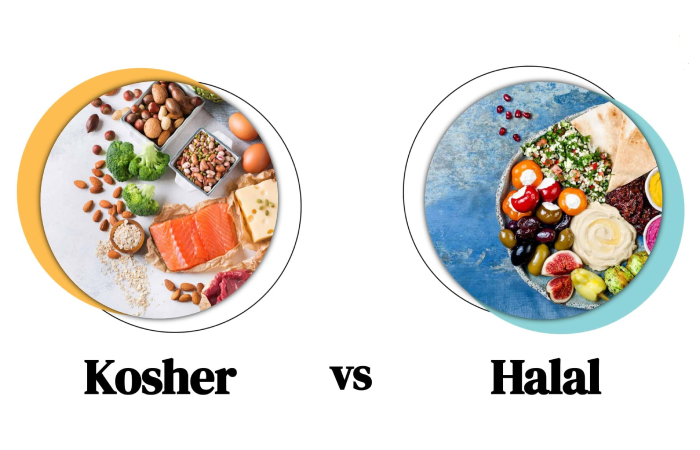
Key Differences In Dietary Laws And Food Preparation
-
Jewish rules are extremely stringent, especially when it comes to slaughter, preparation, and consumption.
-
Several Jewish orthodox people do not believe halal meat to be kosher, although Muslims do.
-
According to Jewish law, the animal must be slaughtered for food by a trained and observant male Jew, but Islam is far more liberal in this regard.
-
Shechita is the ritual slaughter of animals and birds as per Jewish law. In Islamic tradition, the method of slaughtering an animal is known as zabihah.
-
Kosher regulations absolutely forbid the combination of any meat and dairy product.
-
This also implies that all tools and equipment used to prepare meat and dairy must be kept separate at all times.
-
Alcohol is strictly not permitted in Islam , but it is allowed in Judaism.
Impact Of These Practices On Followers Of Islam and Judaism
-
Observing Halal and Kosher promotes a strong sense of belonging and identity in the Islamic and Jewish communities, respectively. Sharing these behaviors connects people to a larger religion community, reinforcing common values and traditions.
-
Both sets of principles emphasize ethical food sourcing, animal welfare, and responsible consumption. This promotes a mindful approach to food and encourages adherents to make mindful decisions that accord with their religious principles.
-
Adhering to these dietary regulations can be an example of spiritual discipline, necessitating commitment and attention to detail. This can carry over into other areas of life, improving self-control and spiritual growth.
-
The increased demand for Halal and Kosher eating habits has resulted in a growing number of specialist eateries, food manufacturers, and certification bodies that cater particularly to the demands of believers.
-
Both sets of activities are associated with ritual cleanliness in their respective religions, which contributes to a sense of sanctity and spiritual cleaning.
Halal Food Apps: Bridging Technology and Dietary Needs
In today's digital age, technology can help bridge the gap between Muslim clients and their nutritional needs. One fascinating development in this field is the growth of Halal food applications.
Overview Of Halal Food Apps
The Halal food applications provide a variety of functions to meet the special needs of Muslims seeking Halal eating options.
Key Features Of These Apps:
Restaurant discovery: Find Halal restaurants in your current location or any desired area, often using filters for cuisine, price range, and user reviews.

Certification verification: Get information about a restaurant's Halal certifications from recognized sources, giving patrons peace of mind.
Detailed restaurant information: Make informed decisions by reviewing photographs, menus, contact information, and opening hours.
Ingredient analysis: Some apps utilize technology to examine restaurant menus and indicate probable non-Halal components to aid decision-making.
Additional functionalities: Meal planning, grocery store locators, Halal recipe libraries, and educational materials all improve the user experience.
Popular Halal Food Applications:

Zabihah is one of the oldest and most comprehensive Halal cuisine apps, featuring restaurant listings, reviews, and certification information.

HalalTrip focuses on travel-friendly Halal options, including restaurants in various places across the world.

Halal Bites: Halal Bites is a reputable halal food locator created for Muslims and others who want to enjoy halal food at nearby restaurants or gyros. This free meal discovering software allows you to find halal cuisine near your current location or any other pinned location around the world.

Halal Navi: A user-friendly interface with features such as location-based search, filters, and detailed restaurant listings.
Popular Food Apps provide:
- General restaurant discovery features like search, filters, and reviews.
- Certification verification and accuracy.
- Additional features like recipe libraries, grocery store finders, or educational resources.
- Travel-friendly functionality if you're planning a trip.
Halal food applications can help Muslim consumers navigate the hurdles of locating and verifying Halal food options in a globalized society. These apps have the ability to close the gap between Muslim dietary needs and accessible options, fostering ease, informed decisions, and a better feeling of community.
Case Study
Despite similar faith-based dietary restrictions between Muslims and Jews, no business has manufactured animal-based products approved for both faiths. But
Mohammad Modarres, founder of Interfaith Ventures in New York, is now offering with Abe's Meats.
- Interfaith Ventures is an incubator that fosters religious unity and conversation through inclusive products and programs.

-
Abe's Meats is the first brand to offer interfaith meat products that are both halal and kosher simultaneously.
-
Abe's Meats is now offering grass-fed, pasture-raised premium beef that is Glatt kosher and Zabihah halal.
-
Modarres is delivering meats anywhere in New York's Manhattan, Queens, Brooklyn, and Bronx boroughs for a fixed charge of $5, aimed for culinary establishments looking to build a more inclusive workplace.
-
Faith-based meats are now more widely available in urban America. They are mostly available at natural food stores and faith-based specialty markets.
Restaurants And Businesses Catering To Halal And Kosher Needs.
Restaurants:
- Halal and Kosher restaurants provide separate menus based on their unique principles, assuring strict adherence to dietary requirements.
- Some caterers offer separate sections or menus with certified Halal or Kosher alternatives in addition to their standard offers.
- Fast-food restaurants and cafes are increasingly recognizing the demand for Halal and Kosher options, establishing dedicated menus or altering existing ones.
- The mobile ventures provide Halal and Kosher cuisine to a variety of locales, catering to both street food fans and event visitors.
Business:
With RFID, organizations can eliminate uncertainty and achieve pinpoint accuracy in food distribution. It's precise logistics with faith at its heart.
These tiny technological wonders allow real-time monitoring of food items, which is critical for ensuring Halal and Kosher compliance across the supply chain.
Barcodes and QR codes enable this, providing a picture of the food's life journey with a simple scan that is precisely crafted to suit faith-based needs.
Blockchain technology offers unrivaled transparency in food sourcing. This collaborative effort ensures the highest standards for faith-based food certification.

The ledger-like structure of blockchain adds a new degree of openness and security to food traceability, effectively eliminating data manipulation.
With OneAgrix, every item on your shelves fulfills the highest safety standards and maintains the sacred trust of your faith-based clients.
The landscape of restaurants and companies catering to Halal and Kosher needs is continuously changing. As awareness and demand increase, we can expect more diverse and accessible solutions to emerge in the future.

Government Regulations on Halal and Kosher Food.
Halal and Kosher Foods Act of 2013
To amend the Emergency Food Assistance Act of 1983 to allow for increased purchases of Kosher and Halal food, as well as to change the labeling of the commodities list under the emergency food assistance program so that Kosher and Halal food bank operators can determine which commodities to obtain from local food banks.
Halal Food:
-
The Halal food industry's regulating and certification system is similar to the Kosher system. It is a local-based system that monitors the production of Halal food and products in each country.
-
Falsely representing a food product as halal to the public is prohibited, regardless of where it is sold or consumed.
-
Malaysia was among the first countries to develop a Halal certification system in the 1980s (Khan and Haleem, 2016), which is managed and sponsored by the local government.
-
The Department of Islamic Development (JAKIM) manages and monitors Halal-related production, retailing, and supply activities to ensure compliance with Islamic dietary requirements. Halal Certification Bodies (HCB) attempt to certify halal status and facilitate trade in halal products.
-
While there are numerous Halal Certification Bodies worldwide, not all are recognized and accepted by local governments in certain countries. In Indonesia, the Indonesia Council of Ulama (MUI) only recognizes 45 international Halal Certified Bodies, but JAKIM of Malaysia recognizes 84 globally.
-
Foreign halal certification agencies are recognized for their capacity to comply with local government procedures and rules while producing raw materials and products.

Kosher Food:
-
The state supported private kashrut enforcement measures through trademark protections and anti-fraud regulations.
-
Organizations can sue for misuse of trademarks or fraudulent representation of certification claims, potentially involving state enforcement regimes.
-
New York was the first state to make it illegal to misrepresent non-kosher foods as kosher. Mandatory disclosure rules, like those in New York, New Jersey, and Virginia, can effectively prevent fraud in the kosher food industry.
-
These laws ensure that kosher-certified food is indeed kosher. Consumers can determine if the certifying authority's criteria align with their religious or other requirements.
The regulation and certification of Kosher food has expanded to include food preparation equipment, known as Equipment Kosherisation. Local rabbis have developed specific processes for making kosher food equipment. Kosherization is required for cooking equipment, especially if it is interchangeable between pareve and dairy. In some situations, a rabbi must be present during the operation.
Applicants for Kosher certifications will be evaluated by trained Rabbinical Kahsrus Supervisors from their different certification bodies to ensure they are ready to get certification.
Certifying will only be granted after adhering to Kosher certifying authorities' rules and regulations. Some credentials require renewal every two years, depending on agency regulations. Some agencies offer regular visits to certificate holders to audit their production processes.
Ethical Considerations In The Production of Halal And Kosher Food
-
Halal and Kosher slaughter need special practices designed to reduce animal suffering. However, disagreements continue about whether these strategies always achieve this goal, sparking ideas about potential enhancements.
-
Ethical considerations extend beyond the time of slaughter and include the animal's existence. Both societies place an increasing emphasis on raising animals in humane circumstances with ample space, natural light, and enrichment.
-
Fair payment, safe working conditions, and respect for all employees involved in the Halal and Kosher food chains are critical. Ethical sourcing techniques should consider both social impact and religious obligations.
-
It's crucial to recognize that striking a balance between following religious requirements and resolving ethical concerns can be difficult. Ongoing communication and collaboration among religious authorities, politicians, food producers, and consumers are critical for developing ethically sound Halal and Kosher food production methods.
Conclusion and Future Trends
-
Halal and Kosher dietary regulations are based on ancient religious texts and have evolved over centuries.
-
Halal practices teach Muslims about authorized foods and acts, emphasizing ethical source and purity.
-
Kosher regulations describe permitted foods and preparation procedures for Jews, with an emphasis on ceremonial purity and keeping the covenant with God.
-
Both have some restrictions, including pork, alcohol, and blood-based products.
-
Halal also prohibits carnivorous animals and those that died naturally.
-
Kosher has particular meat and dairy pairings that are prohibited.
-
Both demand a compassionate slaughter using certain protocols and prayers.
-
Halal stresses reducing animal suffering before slaughter.
-
A qualified ritual slaughterer (shochet) is required for kosher certification.
-
Both influence personal identity, communal cohesion, and spiritual development.
-
Observance promotes religious responsibility, encourages attentive eating, and connects people to tradition.
-
Halal encourages ethical consumption and animal welfare.
-
Kosher promotes ritual purity and staying connected to God.
-
Globalization poses issues such as acquiring ingredients and traveling with dietary restrictions.
-
Apps for seeking Halal and Kosher choices, certification verification, and recipe suggestions all make use of technology.
-
Adapting techniques necessitates striking a balance between tradition and innovation while also honoring various interpretations.
Future trends in Halal and Kosher practices
-
Both dietary regulations have a hopeful future on a worldwide basis. As global demand grows, the economic sector should follow suit. Kosher should expand outside the food and tourism industries, just like Halal has.
-
It has the potential to expand into businesses that adhere to dietary laws, like cosmetics and pharmaceuticals. Research on the impact of emergence is necessary to assess the readiness for expansion in various economic sectors.
-
Halal and Kosher will continue to rise as their followers increase.
-
However, this growth should not be confined to the quantity of people. Both have the ability to develop in various economic sectors.
-
Quality regulation and certification systems are crucial for advancing the industry and providing better products and services to customers.
-
This presents a challenge for religious scholars, legislation specialists, researchers, and industry participants. However, the risk is worth it for a better future for both dietary laws.
Additional Resources and Further Reading
https://meat.tamu.edu/ansc-307-honors/kosher-halal/
https://hmacanada.org/halal-vs-kosher-comparison-of-islamic-and-jewish-dietary-laws/
https://www.history.com/topics/holidays/passover
https://www.myjewishlearning.com/article/kedushah/
https://www.myjewishlearning.com/article/modesty-tzniut/
https://oukosher.org/get-certified-application/https://koshercertification.in/what-is-kosher
https://oukosher.org/
https://fhafnb.com/blog/halal-food-market/
https://www.jewishvirtuallibrary.org/overview-of-jewish-dietary-laws-and-regulations
https://www.soundvision.com/article/halal-and-haram-food-in-the-quran-and-hadith
https://www.mohammadmodarres.com/
https://www.techtarget.com/iotagenda/definition/RFID-radio-frequency-identification
https://ifanca.org/
https://hfce.eu/
https://halalphilippines.gov.ph/
https://iaf.nu/partner_organization/ihaf-international-halal-accreditation-forum/Orthodox
https://oukosher.org/
https://www.ok.org/
https://www.star-k.org/
https://www.kof-k.org/
https://www.crcweb.org/
https://www.ccarnet.org/
https://utj.org/
Books
- Halal Food: History, Culture, and Politics by Felicitas Becker
- Kosher: Private Religion, Public Policy by Jonathan K. Crane
- The Guide to Eating Well & Wisely with Rabbi Zushe Posner by Rabbi Zushe Posner
- Slaughterhouse: The Shocking Story of Halal Meat in America by Gail Eisnitz
- The Food of Paradise: Exploring the World of Middle Eastern, North African, and Persian Cuisine by Najmieh Batmanglij
Halal Certification
The ISWA Halal Certification Department is a globally recognized Halal certification authority.
The ISWA Halal Certification Department is governed by the USA Halal Chamber of Commerce, Inc., an internationally and domestically recognized full-service commerce and professional certification body committed to promoting Halal business and understanding of Islamic dietary compliance. The chamber promotes interaction between industry and customers, ensuring conformity with all Islamic dietary and Shariah laws.
Obtaining A Halal Certification:
Obtaining Halal certification requires numerous phases, and the particular process may differ depending on your area and certifying agency. This is a general overview:
1. Select a Halal Certification Body:
Investigate and evaluate various certification bodies based on their reputation, accreditation, specific focus (e.g., food, cosmetics), and prices.
Popular options include IFANCA, JAKIM, MUI, OU, OK Kosher, and regional groups according on your location.
2. Prepare your application:
Gather the following documents: business registration, product list, ingredient data, production process flowcharts, and slaughterhouse certifications (if applicable).
Understand the exact Halal criteria and requirements established by your chosen certification authority.
3. Facility Audit:
A trained auditor from the certification agency will inspect your production facility to ensure compliance with Halal standards.
This includes evaluating equipment, storage rooms, sanitary techniques, ingredient sources, and killing methods (where applicable).
4. Product Analysis:
Your product samples will be sent to a laboratory for testing to confirm they fulfill Halal criteria.
This could include screening components for prohibited substances such as meat or alcohol.
5. Review and Decision:
The certification organization evaluates audit reports, test results, and application materials.
If everything satisfies their standards, you'll get a Halal certification.
- The process can take a few weeks to several months, depending on the complexity of your business.
- The fees may vary depending on the certification body, product kind, and size of your operation.
- Halal certification demands continual compliance with standards and occasional re-audits.
Halal Certification Authorities
- Islamic Food and Nutrition Council of America
- World Halal Union
- International Halal Accreditation Forum
- Gulf Cooperation Council (GCC) Standardization Organization (GSO)
- The Halal Food Authority
- The Halal Food Council of Europe
- Central Council of Islamic Food Manufacturers
- Saudi Standards, Metrology and Quality Organization
Kosher Certification:
The widespread availability of kashrut certification substantially simplifies the chore of keeping kosher. At least three-quarters of all prepackaged foods in the United States and Canada have some type of kosher certification, and the majority of big companies have credible Orthodox certification.
All of the kashrut certification markings are well recognized and can be seen on products throughout the United States. These symbols are quite visible on food labels, usually near the product name and occasionally near the list of ingredients.
The certifying organization guarantees the product's kashrut. However, you cannot trademark an alphabet letter, thus any producer can put a K on a product. For example, Jell-O brand gelatin bears the letter K, despite the fact that every trustworthy Orthodox authority says that Jell-O is not kosher.
Kosher certifying bodies are progressively indicating whether a product is fleishig, milchig, or pareve.
-
If the product is dairy, a D or the word Dairy will usually appear next to the kashrut mark.
-
If the sign is meat, the word Meat or a M may appear near it.
-
If it's pareve, the word Pareve (or Parev) may appear next to the symbol (Not a P! That implies it's Passover-friendly!).
-
If no such explanation is provided, you should carefully read the ingredient list to discover whether the product is meat, dairy, or pareve.
How to Get Kosher Certification
Step 1: Fill out our application form with details about your company and plant. Your application will be handled by a Rabbinic Coordinator (account executive). This RC will be your dedicated point of contact at the OU, answering your inquiries, addressing your needs, and guiding you through the Kosher certification process.
Step 2: A qualified Rabbinic Field Representative (RFR) will visit your facility to assess the viability of certifying your products. (A processing fee and travel expense fee are billed prior to the inspection.) The RFR will inspect your facility and submit a written report to OU headquarters.
Step 3: Your Rabbinic Coordinator will analyze your application and inspection report and tell you whether or not the OU can give certification. In some cases, system modifications may be required before certification can be granted.
Step 4: The RC will create a contract that includes all OU standards and kosher certification expenses. If you agree, the contract is signed and sent to the OU office, and you are sent a letter of certification.
Step 5: Your new OU-branded product labels can then be submitted for final approval.
Step 6: You have now joined a family of companies that proudly display the OU Kosher Symbol, the world's most well-known and widely approved kosher trademark.
You will be added to the largest Kosher food database, mentioned on the website, and promoted on social channels, food guides, and Jewish magazines as the largest worldwide kosher certification organization.
List of Best Agencies Of Kosher Certification:-
Orthodox Union
Star-k
JCS Acquistive Infotech
Kosher certification ensures that items and services satisfy the strict Kashrut criteria, and it assists Jewish individuals and families in adhering to the Kashrut dietary regulations. Finding certified kosher items and places is made much easier with the assistance of these organizations.
FAQ's
- Can Muslims eat Kosher meat?
Kosher and halal are both mindful ways to consume food, however the two traditions are not interchangeable and have distinct standards. Muslims cannot eat kosher food that does not meet halal requirements.
- Is Halal sticter than Kosher?
In general, kosher laws are tighter in that fewer meats are permitted and meat products must be kept strictly separate from dairy. Halal rule allows a significantly greater variety of meats and shellfish. Only pork and beef that has been unlawfully butchered are completely restricted.


